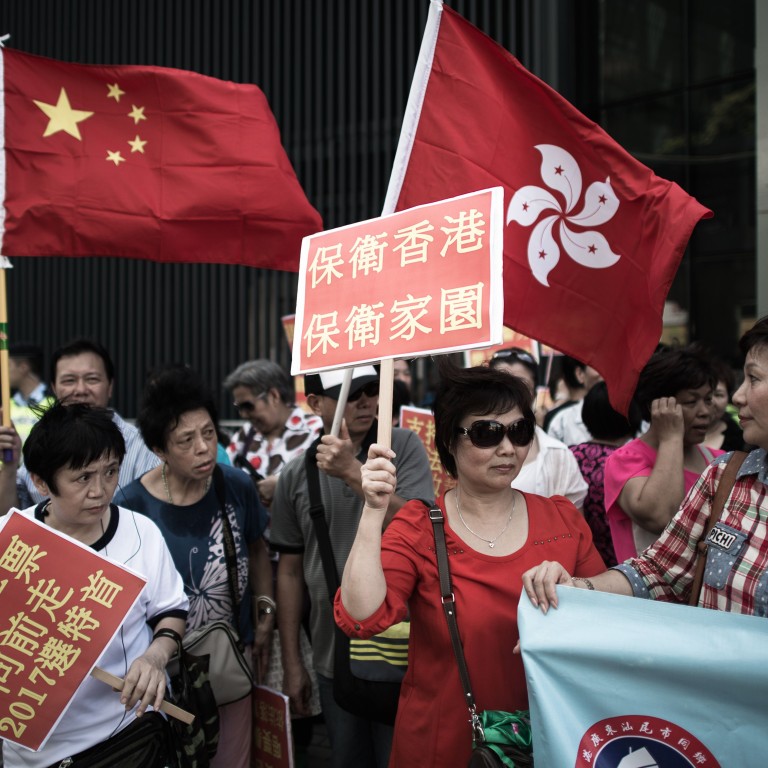
Can Hong Kong be a co-author of the 'one country, two systems' story?
Alice Wu says Hong Kong's sense of identity must evolve to be based on mutual understanding with Beijing, from one of deficiency
Hong Kong's sense of identity runs deep in every political issue and conflict. The post-colonial Hong Kong narrative has been 17 years in the making, but it has been a narrative of ever contesting identities.
Scholars have long understood its role in our collective angst. Dr Howard Choy perhaps put it in the simplest of terms: "They find themselves helplessly trapped in the juxtaposition of the dual identities of overseas British, who have no right of abode in their adopted country, and Chinese nationals, who have no choice in determining their own nationality. For them, the reunification with China as a national integration produces but a nervous breakdown being adherents to, or, more precisely, abandonees of the fallen British Empire and denizens of the rising People's Republic."
Choy wrote that in 2007.
Since then, that "nervous breakdown" has resulted in the rise of a worrying trend of nativism and anti-mainlandisation, accompanied by increasing clashes between locals and mainlanders.
Once the "white man's burden", Hong Kong has somehow become the mainland's burden. That was made quite clear in the State Council's white paper on "one country, two systems", which notes the mainland supported Hong Kong in its times of economic troubles and provided basic necessities.
Interestingly, in the white paper, Beijing sees the handover as Hong Kong having "got rid of colonial rule". But things may appear quite different to people in the special administrative region. And any attempt by Beijing to "interpret" Hong Kong's key pillars of identity, like judicial independence, will be immediately rejected.
The reasons for Hong Kong's reactions are complex. The motherland's surge in economic and political power has had the consequence of making Hongkongers feel "threatened" in their own space. Hongkongers have had to struggle with the feeling of being pushed out of their space, out-numbered in their realm. Once barred from occupying The Peak and other European-only neighbourhoods, now natives have had to give up shopping malls, maternity wards and some brands of milk formula.
The challenge remains: how will Hongkongers forge an identity that stems not from deficiencies or rejections, but from mutual understanding and respect?
But the bigger challenge lies with the motherland. Beijing must recognise Hong Kong's past as part of its own political reality.
Can we be co-authors of where the story of "one country, two systems" leads?
A milestone may come as early as the end of this month, with the anticipated National People's Congress Standing Committee's ruling on Hong Kong's constitutional reform for 2017 and beyond. If the reactions to the white paper are to serve as any guide at all, Beijing must at the very least consider how employing language that gives further reason for angst, like challenging the rule of law that is one of Hong Kong's most distinctive marks of identity, will trigger more crises.

